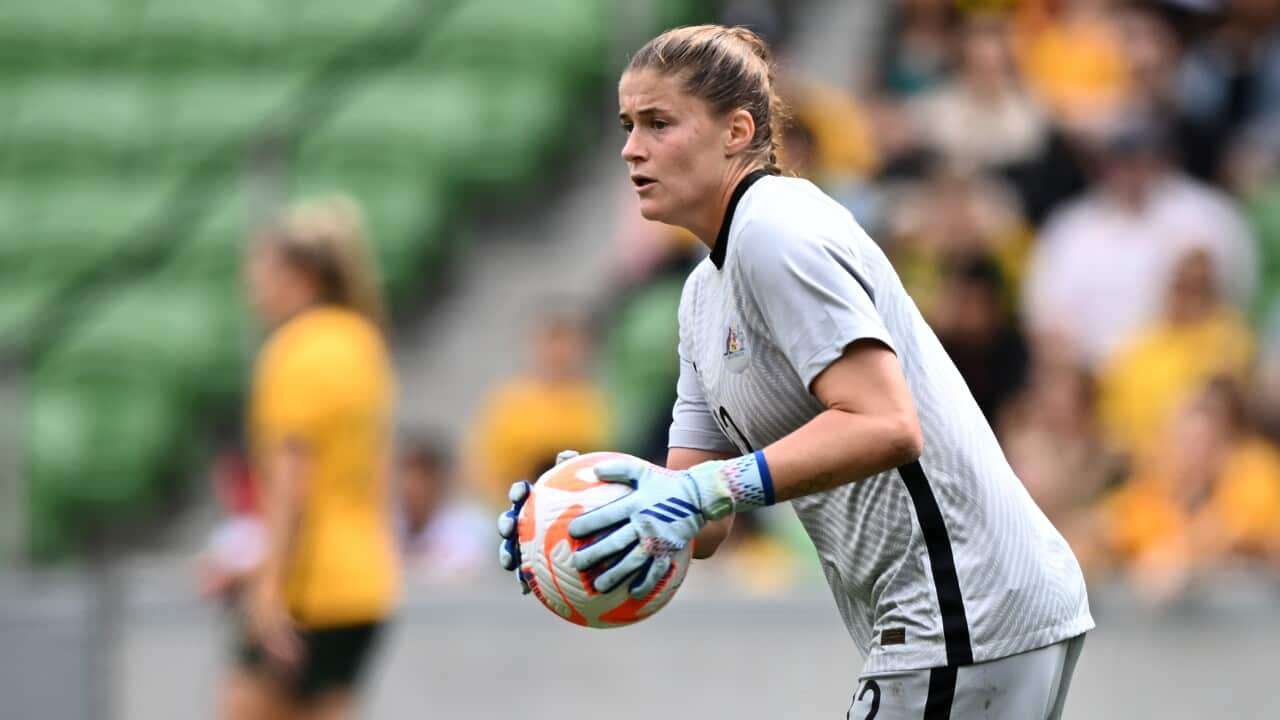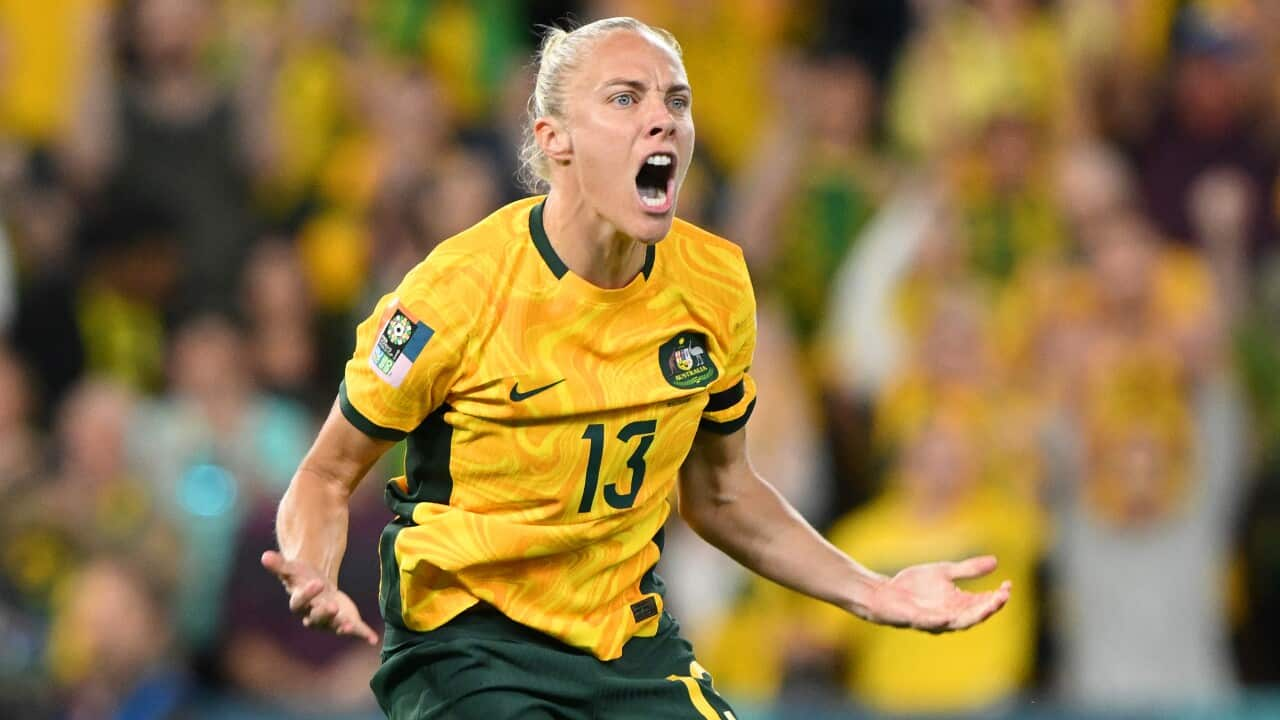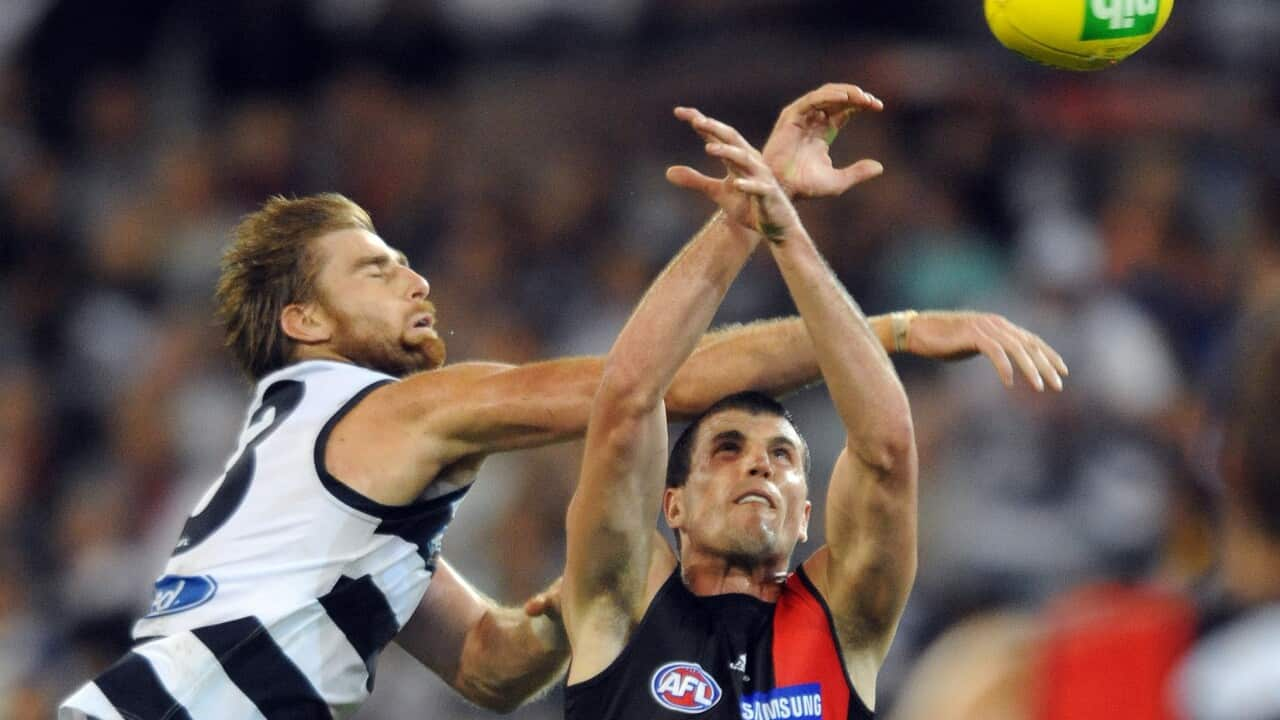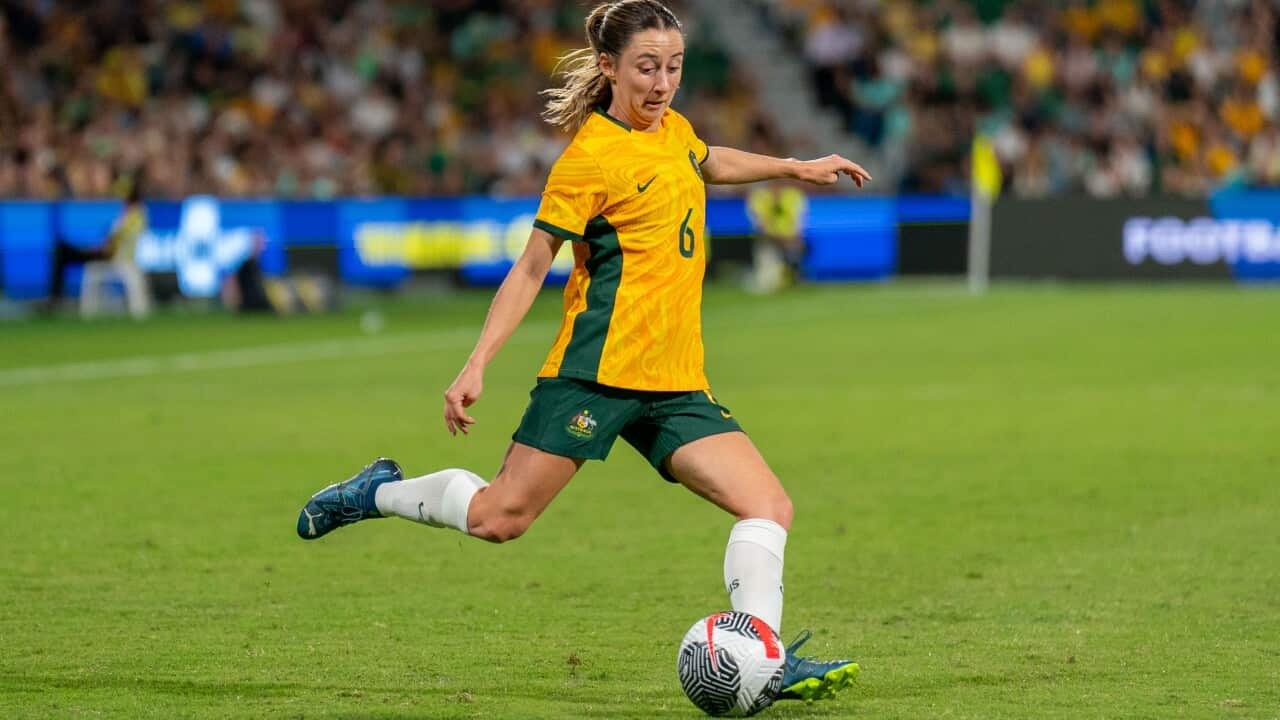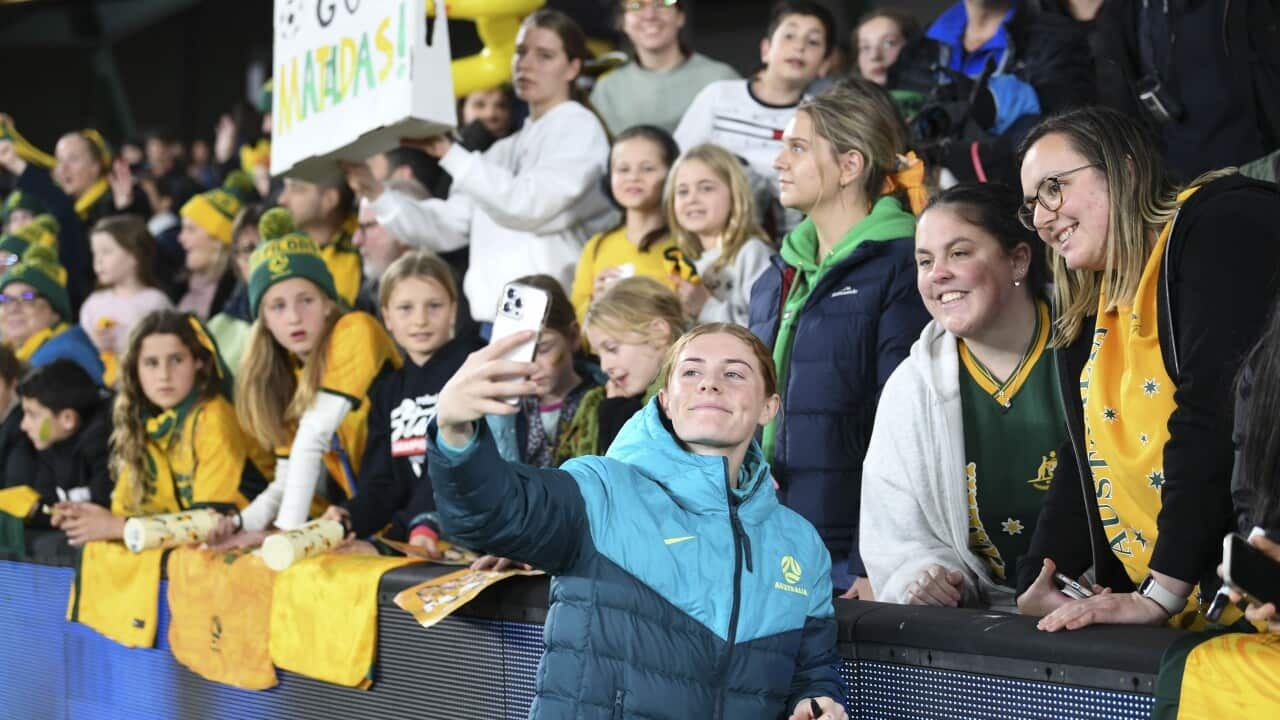Key Points
- Teagan Micah is one of the goalkeepers for the Matildas and is part of the 2024 Paris Olympics squad.
- She has recently been recovering from a deltoid ligament injury, and in 2022 she experienced a serious concussion.
- She said while injuries didn't change her playing style, they did give her more compassion and awareness.
The 2024 Paris Olympics will soon officially open and for some athletes, it will be the biggest days of their lives.
Being sidelined by injury ahead of the biggest sporting event in the world is not something any athlete wants to experience, but for some, it comes with the territory.
Teagan Micah, one of the goalkeepers for the Matildas, has been in recovery mode after a deltoid ligament injury towards the end of her season playing for Liverpool in England.
It's not the first time she's had to take a break from the sport she loves.

Matildas goalkeeper Teagan Micah described the Olympic tournament as "extremely tough". Source: AAP / Sipa USA
She said while the experience has not changed her goalkeeping style or stopped her from being a physical player, it has given her a new perspective.
"It's given me a lot more compassion for concussion and a lot more knowledge around it, and also a lot more compassion with mental health as well," she said.
"I struggled deeply with my mental health during that time."
Micah said she now advocates for athletes to look after themselves both physically and mentally, and not to take risks when it comes to head injuries.
"I'm the first to say to my teammates, especially if they're centre-back and they're heading the ball all the time and they look a bit dizzy, I'm like, 'Sit down, take your time. It's not that deep. It's just a game of football,'" she said.
"So many of us have always had that 'kick-on' kind of mentality, but at the end of the day, it's your head. I'd rather people really take care of that and feel 100 per cent than push to play the rest of the game."
The topic of head injuries in sport has gained prominence in recent years across different sporting codes including football, AFL and rugby league.
Micah said the issue is still not understood well.
"I think there needs to be a lot more awareness, even just research and studies, all those things are going to help," she said.
"And I think more expert doctors in that area, but also just the awareness of knowing when to stop as well for yourself and when to draw the line."
Olympics an 'extremely tough' tournament
The football tournament at the Olympics is short and intense, and the Matildas will face tough opposition in their group games as they face off against Zambia, Germany and the United States.
Micah said the heat and quick turnarounds would be challenging for all teams.
"Hopefully we'll be rotating and using our squad because it's such a quick turnaround," she said.
"So we need everyone really healthy and fit and ready to go because not only with the quick days, also the heat and the quality of the opposition back to back, all those factors come into account."
Throughout the 2023 Women's World Cup, women's football experienced a surge in popularity in Australia, with matches selling out around the country and the team's semi-final against England holding a national average audience of 7.13 million.
Public support for the team has continued, with their Olympic qualifying home matches also selling out.
Micah said the level of support the Matildas received had been "massive" for the team.
"Seeing how many stadiums we pack out and sell out as Matildas ... that support is greatly appreciated by every single one of us," she said.
"And we see all the fans before the games, after the games, and we do our best to try and give back and give signatures and make kids happy as much as we can because we acknowledged that, growing up, we didn't have those types of role models, really, to look up to."
We didn't have those types of role models, really, to look up to.Teagan Micah
"So we do know that we have great responsibility in that as well."
But when it comes to women's sport and equality in football, Micah said there is still a way to go.
Players in the women's competition continue to receive less prize money and lower salaries than their male counterparts, and in some countries, women are still not recognised as professional athletes, she said.
"I think there's a small bubble where it is (improving), but then we also have to remember the greater scheme of other countries that are still fighting for even to just get paid by (their) national team and get proper standard of travel and fields and all those things," she said.
"Even just after the World Cup, I think it was Nigeria, [players] were fighting to even to get paid by their federation, even though that money was for them, rightfully theirs, and they still have to fight for it.
"So things like that remind you that it's still got a long way to come."
